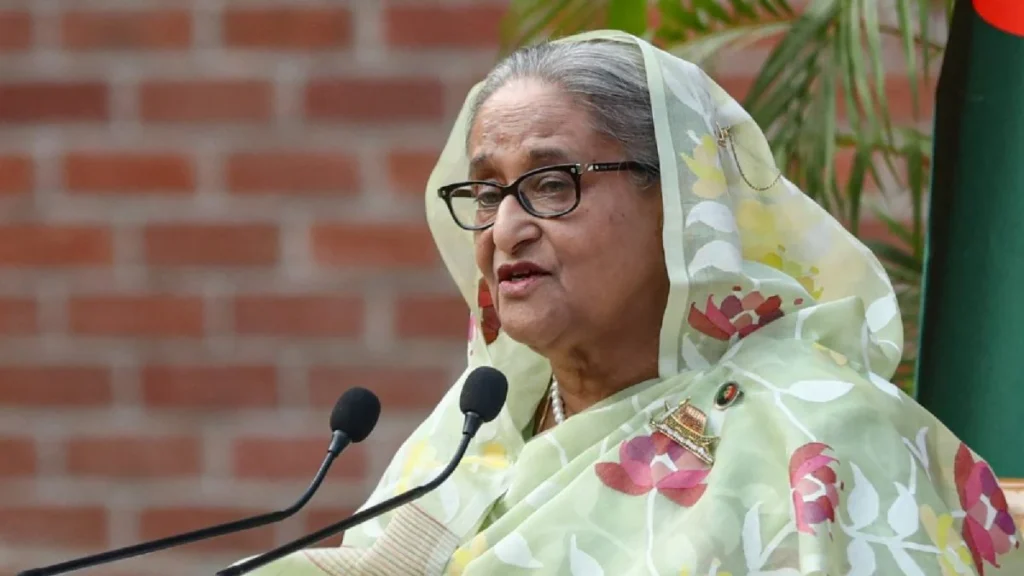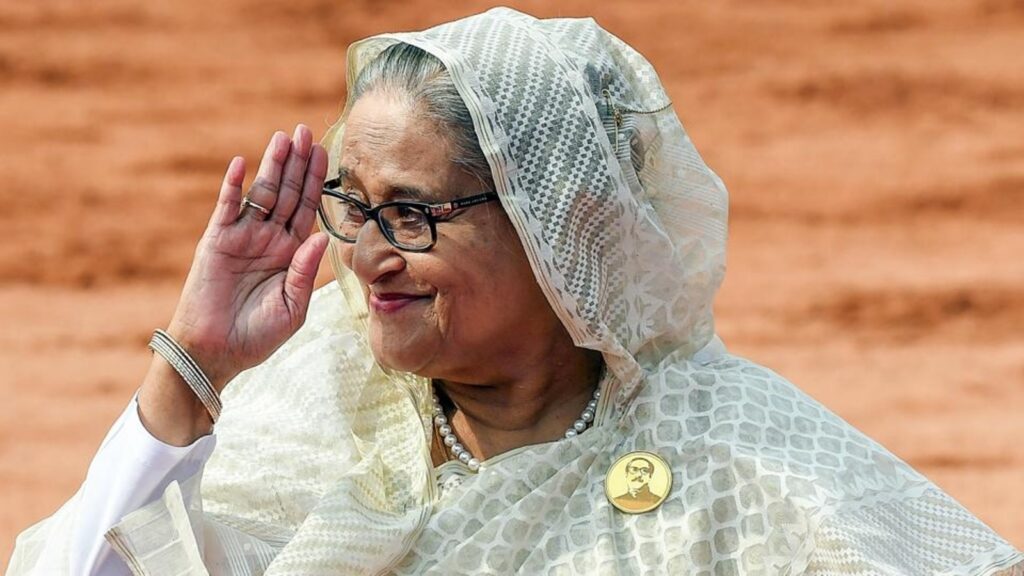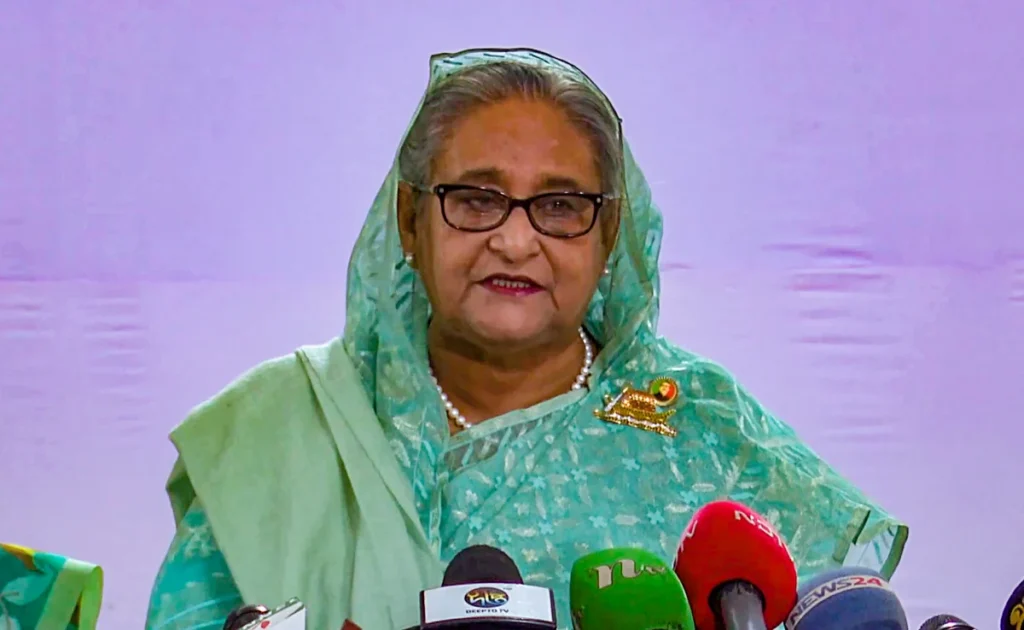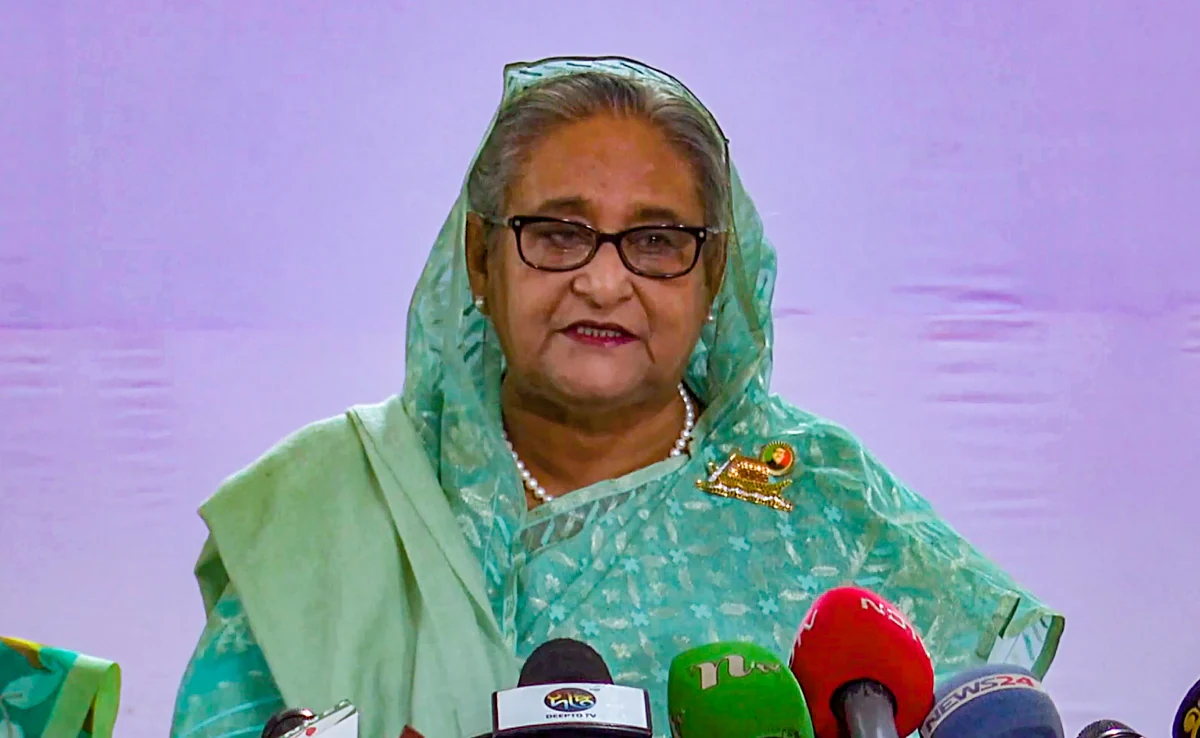In a significant political development, Sheikh Hasina has secured her return as the Prime Minister of Bangladesh for a fourth consecutive term, following a resounding victory in the 2024 general elections. Hasina, the leader of the Awami League (AL), has once again solidified her position as one of South Asia’s most influential leaders. As she prepares to take the reins of the country for another term, the Prime Minister has expressed her gratitude towards India, acknowledging the continued support from the neighboring nation throughout her tenure. This support has played a pivotal role in shaping Bangladesh’s growth trajectory, strengthening bilateral ties, and bolstering regional stability.
Sheikh Hasina’s Political Journey
Sheikh Hasina, the daughter of the founding father of Bangladesh, Sheikh Mujibur Rahman, has been at the helm of the Awami League for over three decades. Throughout her political career, she has navigated through periods of political instability, opposition protests, and tensions within her own party. Despite these challenges, Hasina has remained a dominant figure in Bangladesh’s political landscape. Under her leadership, Bangladesh has seen remarkable economic growth, improvements in infrastructure, and significant strides in the fields of health, education, and technology.
Her return as Prime Minister is a testament to her enduring popularity and the trust the people of Bangladesh have placed in her leadership. Hasina’s political vision has centered on progressive reforms, ensuring that Bangladesh continues to evolve as an economic powerhouse in South Asia while also maintaining its cultural heritage. With her return to office, expectations are high for her to continue her work on domestic and international fronts, with a particular focus on economic growth, social welfare, and regional cooperation.
Bangladesh-India Relations Under Sheikh Hasina
A key aspect of Sheikh Hasina’s tenure has been her ability to navigate Bangladesh’s relationship with India, the region’s largest and most powerful nation. The relationship between Bangladesh and India has grown steadily during her leadership, with numerous collaborations in areas such as trade, security, and energy. India has been a crucial partner for Bangladesh, providing economic assistance, trade partnerships, and support for Bangladesh’s development projects.
Hasina has often praised India’s role in supporting Bangladesh during its most challenging times. One of the most significant milestones in Bangladesh-India relations came in 2013 when the Indian government helped resolve the contentious issue of the border agreement, ensuring better security and infrastructure development for both nations. The relationship deepened further in the aftermath of the Rohingya crisis in Myanmar, where Bangladesh sought India’s help in addressing the humanitarian crisis, and India played an important role in assisting the country through diplomatic channels and aid.
Under Sheikh Hasina, Bangladesh has also seen significant infrastructure projects funded by India, including power plants, transportation networks, and connectivity enhancements. This collaboration has not only improved Bangladesh’s infrastructure but has also paved the way for increased trade and economic ties between the two nations.



Sheikh Hasina’s Gratitude Towards India
As she returns to office for a new term, Sheikh Hasina has publicly expressed her gratitude to India for its unwavering support in various sectors. The Prime Minister acknowledged the positive contributions India has made to Bangladesh’s progress, particularly in terms of trade and security cooperation. In her remarks, Hasina emphasized the strength of the historical ties between the two nations, forged during the Bangladesh Liberation War of 1971, where India played a crucial role in the creation of the independent state of Bangladesh.
Hasina also highlighted the significance of India’s support in fostering regional stability. With both countries sharing borders and regional security concerns, Hasina believes that the continued partnership with India will help both nations address common challenges, such as terrorism, border security, and climate change, which have become increasingly important in today’s interconnected world. Furthermore, she extended her thanks to the Indian leadership for their collaborative efforts in promoting peace and development in South Asia.
Strengthening Bangladesh’s Economic Growth
Sheikh Hasina’s tenure has been marked by impressive economic achievements, and she is keen to continue this trajectory. During her leadership, Bangladesh’s economy has grown significantly, with a focus on industrialization, agricultural development, and the expansion of the service sector. The country’s GDP growth has consistently outpaced that of many other nations in the region, and the government has worked hard to reduce poverty and improve social welfare. The manufacturing sector, particularly the garment industry, has seen exponential growth, making Bangladesh one of the world’s largest textile exporters.
India’s support has been vital in achieving these successes. Through bilateral agreements, India has provided trade routes, logistical support, and energy solutions to Bangladesh, which have facilitated the movement of goods and services across borders. Additionally, the Indian government’s focus on regional connectivity has helped Bangladesh integrate better into the broader South Asian economy.
One of the key projects in which India has played a crucial role is the Bangladesh-India Friendship Pipeline, which facilitates the transportation of petroleum products from India to Bangladesh. This has significantly reduced Bangladesh’s dependency on other sources of fuel and has improved the country’s energy security.
Future Prospects for Bangladesh-India Relations
Looking forward, Sheikh Hasina’s government is expected to continue nurturing the relationship with India. The Prime Minister has expressed her desire to take Bangladesh’s relations with India to greater heights, especially in sectors such as trade, education, technology, and climate change. Both nations face challenges related to climate change, with flooding, droughts, and cyclones affecting millions of people in both countries. Joint initiatives in renewable energy, disaster management, and climate-resilient infrastructure will likely form a key part of the bilateral agenda in the coming years.
Additionally, the trade volume between the two countries is expected to increase, with Bangladesh eyeing further market access for its goods and services in India. The two countries are also likely to expand their cooperation in the fields of regional security, including the fight against terrorism and organized crime, which affect both nations.
Conclusion: A New Era of Collaboration
Sheikh Hasina’s return as Prime Minister marks a new chapter in Bangladesh’s political and economic journey, and her gratitude toward India reflects the deep ties between the two nations. With the continued support of India, Bangladesh is poised to maintain its growth trajectory and strengthen its position as a key player in the South Asian region. As both countries look to the future, the hope is that their partnership will evolve even further, fostering greater regional stability, economic prosperity, and social well-being for their citizens.
FOLLOW:https://newsroom47.com/ssc-mts-2024-11518-candidates-make/
Newsroom 47
